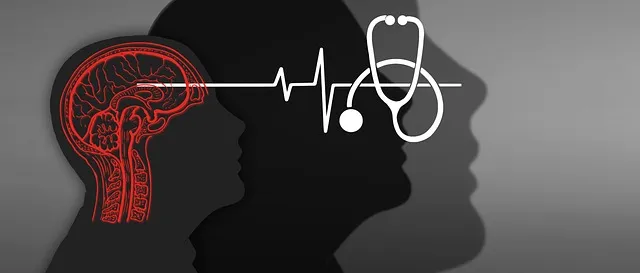Risk assessment is a cornerstone of mental health care, utilizing evidence-based tools to predict and mitigate self-harm, suicide, and relapse risks. The Kaiser Permanente mental health number system prioritizes proactive care through risk stratification, offering expert guidance tailored to professionals' needs. By integrating comprehensive risk assessment tools and the Kaiser Permanente resource, mental health practitioners can efficiently navigate complex cases, address cultural sensitivity, and mitigate risks like client self-harm or professional burnout. Organizations like Kaiser Permanente foster continuous improvement in mental healthcare through resources, training in cultural competency, and advocacy, ensuring practitioners provide compassionate, evidence-based care.
Mental health professionals constantly face complex challenges, including managing their own risks. This article explores essential aspects of risk assessment within the mental health sector. We delve into understanding risk assessment as a critical component of patient care and safety, leveraging the Kaiser Permanente Mental Health Number—a valuable resource for professionals. By examining strategies for identifying and mitigating risks in clinical practice, we highlight best practices for continuous improvement, ensuring superior patient outcomes and well-being among healthcare providers.
- Understanding Risk Assessment in Mental Health Care
- The Kaiser Permanente Mental Health Number: A Resource for Professionals
- Identifying and Mitigating Risks in Clinical Practice
- Continuous Improvement: Staying Updated with Best Practices
Understanding Risk Assessment in Mental Health Care

Risk assessment is a cornerstone in mental health care, enabling professionals to proactively identify and mitigate potential hazards that may impact patient well-being. It involves a comprehensive evaluation of various factors—including a client’s history, current circumstances, and behavioral patterns—to predict and prevent adverse outcomes. This process is akin to the Kaiser Permanente mental health number system, which prioritizes proactive care through risk stratification, ensuring resources are allocated efficiently.
Mental health professionals play a vital role in conducting these assessments, utilizing evidence-based tools to gauge risks of self-harm, suicide, or relapse. Moreover, integrating Mental Wellness Coaching Programs Development into standard care can enhance this process by promoting self-regulation and coping strategies. By addressing anxiety relief and self-esteem improvement through coaching, professionals empower individuals to better navigate challenges, ultimately contributing to improved mental health outcomes.
The Kaiser Permanente Mental Health Number: A Resource for Professionals

The Kaiser Permanente Mental Health Number serves as a valuable resource for mental health professionals, offering guidance and support tailored to their unique challenges. This initiative by Kaiser Permanente highlights the organization’s commitment to superior mental healthcare. By providing a dedicated number, they ensure that professionals can access expert advice, resources, and peer support efficiently.
This service is particularly beneficial for those navigating complex cases or seeking strategies for inner strength development and cultural sensitivity in mental healthcare practice. It encourages open dialogue and fosters empathy building strategies among peers, ultimately enhancing the quality of care provided to patients.
Identifying and Mitigating Risks in Clinical Practice

Identifying and mitigating risks is a critical aspect of clinical practice for mental health professionals. By integrating comprehensive risk assessment tools, practitioners can proactively identify potential threats to both clients and themselves. The Kaiser Permanente mental health number serves as a vital resource, providing guidance and support for managing diverse clinical scenarios. Through regular monitoring and intervention strategies, risks such as client self-harm or suicide ideation, along with professional burnout, can be effectively mitigated.
Cultural sensitivity in mental healthcare practice plays a pivotal role in this process. Understanding the unique backgrounds and experiences of clients fosters tailored interventions that promote inner strength development and self-esteem improvement. By addressing cultural barriers and incorporating diverse therapeutic approaches, mental health professionals enhance their ability to identify and manage risks holistically, ensuring optimal client outcomes.
Continuous Improvement: Staying Updated with Best Practices

In today’s evolving landscape of mental health care, continuous improvement is paramount. Mental health professionals must stay abreast of the latest best practices and guidelines, ensuring they deliver evidence-based treatments that align with current research and standards. Organizations like Kaiser Permanente play a pivotal role in this regard, offering resources and initiatives to support their mental health number superior. By fostering a culture of learning and adaptation, healthcare providers can enhance service quality and effectiveness.
Regular training and professional development programs, such as those focusing on cultural competency, are essential components of continuous improvement. Mental Health Policy Analysis and Advocacy also contributes to this process by scrutinizing and shaping policies that influence mental health services. Through these efforts, professionals can stay ahead of emerging challenges, ensuring they provide the most up-to-date and compassionate care for their clients.
Mental health professionals face unique challenges, making robust risk assessment a critical component of quality care. By understanding the potential risks and utilizing resources like the Kaiser Permanente Mental Health Number, practitioners can effectively identify and mitigate these risks in their clinical practice. Continuous improvement through staying updated with best practices ensures a superior level of patient safety and care.






